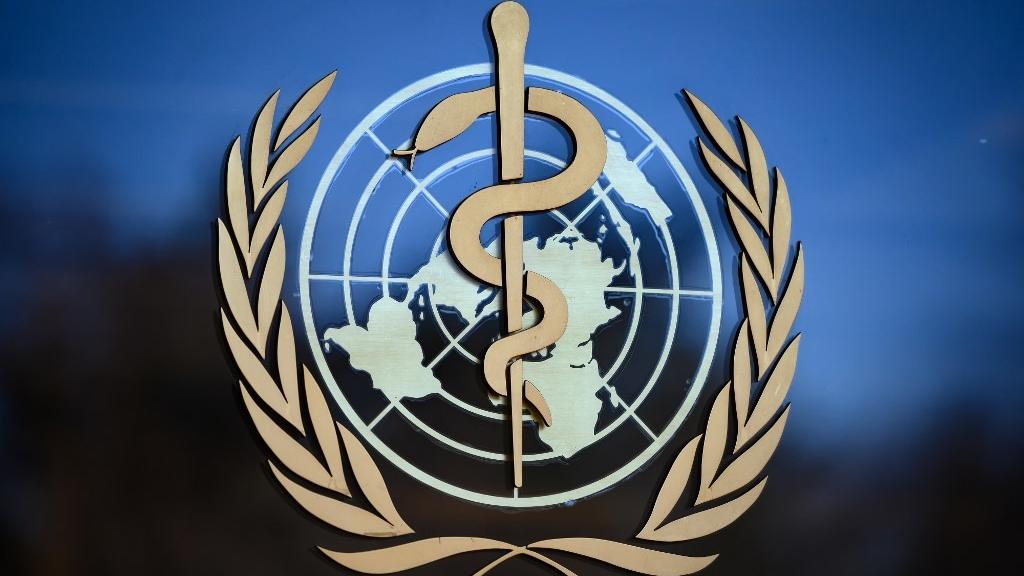 This file photo taken on Feb 24, 2020 shows the logo of the World Health Organization (WHO) at their headquarters in Geneva. (FABRICE COFFRINI / AFP)
This file photo taken on Feb 24, 2020 shows the logo of the World Health Organization (WHO) at their headquarters in Geneva. (FABRICE COFFRINI / AFP)
As countries across Europe experience rapid rises in COVID-19 cases and reimpose some lockdown measures, the World Health Organization emphasized that countries need to apply all the tools to avoid rampant community transmission, with more than 37 million people worldwide having been infected.
Italy has imposed a nationwide outdoor mask mandate with fines of up to 1,000 euros (US$1,160) for violators, and the Spanish government has declared a state of emergency in Madrid and the surrounding region.
Mike Ryan, executive director of the WHO's Health Emergencies Programme, said that in many situations new cases can be contained in the ways that many countries have demonstrated since the pandemic broke out.
Countries should focus on shutting chains of transmission through tools such as case surveillance, isolating cases and quarantining contacts, he said.
Unlike China and some other East Asian countries and regions, contact tracing and isolation are often not strictly enforced in many European countries. Surveillance measures are sometimes challenged as an infringement of privacy and civil rights.
Countries need to do everything possible to avoid letting transmission become rampant at the community level, Ryan said.
Maria Van Kerkhove, the WHO's technical lead on COVID-19, also reiterated the importance of applying all the tools that are required.
Mike Ryan, executive director of the WHO's Health Emergencies Programme, said that in many situations new cases can be contained in the ways that many countries have demonstrated since the pandemic broke out
ALSO READ: WHO: One in 10 may have caught COVID-19
She acknowledged that it is hard to strike a balance between reopening society and suppressing transmission, but she said it is important to engage and empower the public and enable people to take the measures needed.
Globally more than 37.2 million people have been infected by COVID-19, and more than 1.07 million have died, according to a tally kept by the Johns Hopkins University in Baltimore, Maryland in the United States.
In India, the number of confirmed coronavirus cases passed 7 million on Sunday, although the number of new cases has dipped in recent weeks, even as health experts warned that mask and distancing fatigue is setting in.
The health ministry reported 918 additional deaths, taking the number to 108,334. However, some experts say India's death toll may be unreliable because of poor reporting and health infrastructure and inadequate testing.
Rising cases
Indian Health officials have warned of the potential for the virus to spread during the upcoming religious festival season, marked by huge gatherings in temples and shopping districts.
In Brazil the number of deaths due to COVID-19 passed 150,000 on Saturday, but the rate of infections continues to slow.
Brazil, with a population of 212 million, accounts for the majority of deaths in Latin America and the Caribbean: 150,198 since the first fatality was recorded in March, and 5,082,637 infections, the health ministry said.
It is the second-highest national death toll, after that of the US, and the country has the third-highest numbers of infections after those of the US and India.
The Chinese embassy in Brazil on Friday delivered the second batch of anti-epidemic supplies sent by the Chinese government.
Yang Wanming, China's ambassador to Brazil, said the country will continue to support Brazil in overcoming the pandemic by providing material assistance, exchanging medical expertise, intensifying collaboration on vaccines and, once the pandemic is over, collaborating with Brazil through bilateral mechanisms.
Iran made mask-wearing mandatory in public in Teheran on Saturday, with violations punishable by fines, as the country's total number of confirmed cases was poised to surpass 500,000.
Iranian President Hassan Rouhani said in televised remarks that anyone caught outdoors without a mask in the capital would be fined 500,000 rials (about US$12).
READ MORE: WHO's Tedros: COVID-19 vaccine may be ready by year-end
Those infected with the coronavirus who do not self-quarantine or inform friends and colleagues of their illness would be fined 2 million rials, he said.
Schools, mosques, shops, restaurants and other public institutions in Teheran closed for a week on Oct 3 in an effort to curb the spread of the virus. On Friday the city's governor extended the closure by a week.
Liu Xuan in Beijing, Xinhua and agencies contributed to this story.


